Chungking Express (1994): love, loneliness and the look of Wong Kar-Wai | el amor, la soledad y la mirada de Wong Kar-Wai
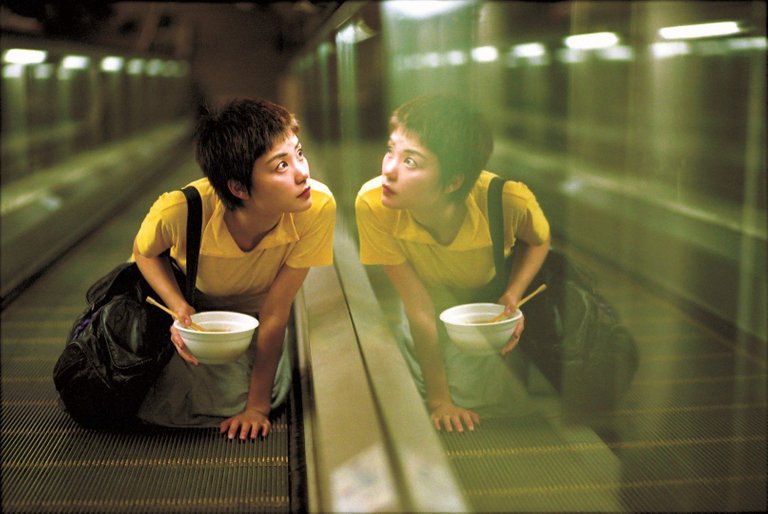
Now I'm better at remembering names of directors, actors, and movies, but a few years ago I would often add movies to my list just because of a title, a poster, a trailer, or some other reason. Now, streaming platforms allow me to browse the different available titles by the same director or filter results by a specific actor and I have found surprising relationships between titles. Surprising to me at least.
Ahora soy mejor a la hora de recordar nombres de directores, actores y películas, pero hace algunos años muchas veces agregaba películas por ver a mi lista sólo por un título, un poster, un trailer o alguna otra razón. Ahora, las plataformas de streaming me permiten navegar por los distintos títulos disponibles de un mismo director o filtrar resultados por un actor en específico y me he encontrado con sorprendentes relaciones entre títulos. Sorprendentes al menos para mí.
For example, the movie In the Mood for Love is one of my all-time favourites, and since it's available on MUBI I've added it to my watch list so I can watch it again soon. Once there, out of curiosity, I explored the filmography of its director Wong Kar-Wai available on the platform and found three more titles: Happy Together, Fallen Angels and Chungking Express. The curious thing about this is that I had already had those last two titles on my personal list for years and I think that if I had known that they were from the same director of In the Mood For Love I would have seen them much earlier. Anyway I decided to have my own personal Wong Kar-Wai cycle and watch those three movies on consecutive nights before rewatching the movie that introduced me to it and the first one I saw last Wednesday night was Chungking Express written by the director himself and released in his native Hong Kong in 1994. It is considered a cult film, one of the best films of the nineties and was nominated for many international awards. Despite being only Wong Kar-Wai's fourth film, it has great quality and a strong voice of its own.
Por ejemplo, la película In the Mood for Love es una de mis favoritas de siempre y como está disponible en MUBI la agregué a mi lista de pendientes para volver a verla pronto. Una vez allí, por curiosidad, exploré la filmografía de su director Wong Kar-Wai disponible en la plataforma y encontré tres títulos más: Happy Together, Fallen Angels y Chungking Express. Lo curioso de esto es que esos dos últimos títulos ya los tenía en mi lista personal desde hacía años y creo que si hubiera sabido que eran del mismo director de In the Mood For Love las hubiera visto mucho antes. En fin que decidí tener mi propio ciclo personal de Wong Kar-Wai y ver esas tres películas en noches consecutivas antes de volver a ver la película que me lo introdujo y la primera que vi, la noche del miércoles pasado, fue Chungking Express escrita por el propio director y estrenada en su natal Hong Kong en 1994. Está considerada una película de culto, una de las mejores películas de los años noventa y estuvo nominada a muchos premios internacionales. A pesar de ser apenas la cuarta película de Wong Kar-Wai posee una gran calidad y una fuerte voz propia.

Chungking Express is an episodic movie. It's not exactly a crossover story film because the two love stories that are told take place independently of each other and although both are located in Hong Kong, there is no relationship between the protagonists of one and the other. It's almost as if they were two short films, one after the other, connected by theme and geographic space.
Chungking Express es una película de episodios. No es exctamente una película de historias cruzadas porque las dos historias de amor que se cuentan se desarrollan de forma independiente una de la otra y aunque ambas están localizadas en Hong Kong, no existe relación alguna entre los protagonistas de una y otra. Es casi como si fuesen dos películas cortas, una detrás de la otra, conectadas por el tema y el espacio geográfico.
The first of the stories describes a brief encounter between a young police officer and a mysterious woman. The policeman has just come out of a love relationship that ended in a confusing way and his duel is quite poetic and romantic (these are those scenes that you must have seen about the pineapple cans and the expiration date) when he accidentally runs into a woman from who falls in love soon after. But this woman is a femme fatale, a drug dealer whose latest mission to send Indian citizens like camels on a business trip has just gone awry. Knowing that her head has a price and that she must answer for what has gone wrong, the woman tries to resolve her situation when she runs into the young policeman. A bit like oil and water and a bit like the opposite ends of a magnet, a confused, strange, complementary and antagonistic relationship arises between the two. To the romantic sadness of the policeman, the memories of his ex, his habit of running so as not to cry and all that sensitive side, is added the action and the vertigo of the woman's persecutions, seedy clubs, drugs, bars, shootings. ... both stories make up a very interesting balance.
La primera de las historias describe un encuentro breve entre un joven policía y una mujer misteriosa. El policía acaba de salir de una relación amorosa que terminó de manera confusa y su duelo es bastante poético y romántico (son esas escenas que deben haber visto sobre las latas de piña y la fecha de caducidad) cuando se topa por azar con una mujer de quien se enamora poco después. Pero esta mujer es una femme fatale, traficante de drogas cuya última misión de enviar a unos ciudadanos indios como camellos en un viaje de negocios se acaba de torcer. Sabiendo que su cabeza tiene un precio y de que debe responder por lo que le ha salido mal, la mujer intenta resolver su situación cuando se topa con el joven policía. Un poco como agua y aceite y otro poco como los extremos opuestos de un imán, surge entre ambos una relación confusa, extraña, complementaria y antagónica. A la romántica tristeza del policía, los recuerdos de su ex, su costumbre de correr para no llorar y todo ese lado sensible, se suma la acción y el vértigo de las persecusiones de la mujer, antros de mala muerte, drogas, bares, tiroteos... ambas historias conforman un balance muy interesante.

The second story also begins with another romance that ends between a lonely police officer and a stewardess who has left him. Officer 663 is a simple, kind man, who speaks politely and even talks to objects and humanizes them to the point of mentioning that his department mourns the departure of his last girlfriend. The man finds himself in the middle of that duel when a new waitress starts working at the bar where he usually eats. The girl is young, thin, enjoys listening to music at a very high volume and dreams of going to the California that one of her favorite songs talks about. Although she is shy, the girl will have the opportunity to get closer to the officer's world without him noticing and will display one of the most beautiful demonstrations of love I have seen in the cinema, which is to care for the other and take charge of improving his environment, to encourage and help him without him noticing. A bit like in the Kim Ki-duk movies, the invisible presence of the waitress helps the officer exorcise the demon of his ex. Lastly, I love the final scene of this story and the way the movie ends.
La segunda historia comienza también con otro romance que termina entre un solitario agente de policia y una azafata que lo ha dejado. El oficial 663 es un hombre sencillo, amable, que habla educadamente e incluso conversa con los objetos y los humaniza al punto de mencionar que su departamento llora la partida de su última novia. El hombre se encuentra en medio de ese duelo cuando una nueva camarera comienza a trabajar en el bar donde él suele comer. La chica es joven, delgada, disfruta escuchando música a un volumen muy alto y sueña con irse a la California de la que habla una de sus canciones favoritas. Si bien es tímida, la chica tendrá la opotunidad de acercarse al mundo del oficial sin que él lo note y desplegará una de las demostraciones de amor más bonitas que he visto en el cine, que es preocuparse por el otro y encargarse de mejorar su entorno, de animarlo y ayudarle sin que el otro se de cuenta. Un poco como en las películas de Kim Ki-duk la presencia invisible de la camarera ayuda al oficial a exorcizar el demonio de su ex. Por último, me encanta la escena final de esta historia y la forma en que termina la película.
The direction and script are impeccable. The photography of Christopher Doyle and Andrew Lau is wonderful, their approaches, the framing, the angles, the mixture of static sequences and those of greater vertigo, the color palette... Chungking Express is a film visually very well done. The music, by Frankie Chan, Roel A. Garcia and Michael Galasso is also accurate for the movie and obviously the highlight are those three songs that flutter around the second love story: California Dreamin' by The Mamas and the Papas; Dinah Washington's version of What a Difference a Day Makes and Faye Wong's (the actress who plays the waitress in the film) Cantonese cover of The Cranberries' song Dreams. It's almost impossible to finish the movie and not want to hear these three songs on an endless loop again.
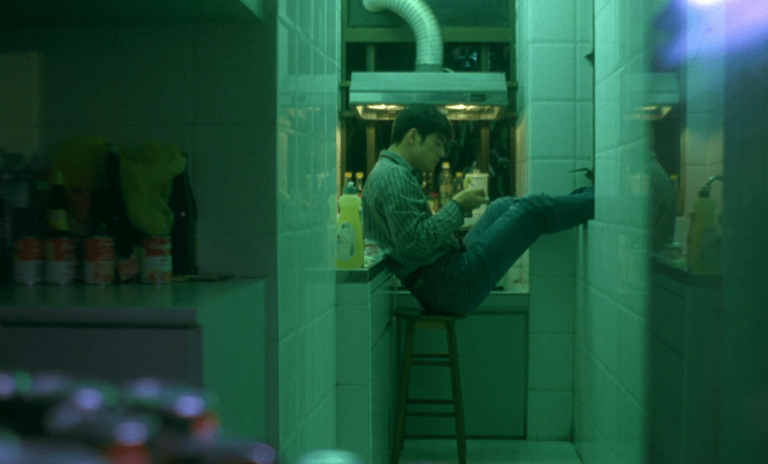
La dirección y el guión son impecables. La fotografía de Christopher Doyle y Andrew Lau es maravillosa, sus enfoques, los encuadres, los ángulos, la mezcla de las secuencias estáticas y las de mayor vértigo, la paleta de colores... Chungking Express es una película visualmente muy bien hecha. La música, a cargo de Frankie Chan, Roel A. García y Michael Galasso también es precisa para la película y obviamente lo más destacado son esas tres canciones que revolotean alrededor de la segunda historia de amor: California Dreamin' de The Mamas and the Papas; la versión de Dinah Washington de What a Difference a Day Makes y el cover en cantonés de Faye Wong (la actriz que interpreta a la camarera en la película) del tema Dreams de The Cranberries. Es casi imposible acabar la película y no querer oír de nuevo estas tres canciones en un bucle infinito.
So we have an impeccable film execution, two love stories that also mix action, drugs, violence, humor, reflections on youth, loneliness, and that search for the meaning of life, all led on screen by charming characters (my favorite is Faye, the shy waitress, somewhat scattered, noble and romantic) who manage to seduce you to the point of feeling what they are feeling: the abandonment of the first policeman, the fear of the trafficker woman, the loneliness of agent 663 and Faye's dreams, everything is palpable through the screen. Without a doubt, this is one of the best films of the nineties that, in addition to allowing us to remember that time through its technological elements (music on CDs, the use of a pager when mobile phones were not yet common) speaks to us about emotions as timeless as love and loneliness. In case you have not seen anything by Wong Kar-Wai, I recommend starting with this film, unless like me when possible, you prefer to see the filmography in chronological order and if you have not seen Asian cinema beyond Japan or South Korea, include Hong Kong on your radar because the truth is that there are cinematographic jewels made in that place, have any of you seen a Wong Kar-Wai film? What is your favorite? I read you in the comments.
Entonces tenemos una ejecución fílmica impecable, dos historias de amor que además mezclan acción, drogas, violencia, humor, reflexiones sobre la juventud, la soledad, y esa viaje que es la búsqueda del sentido de la vida, todo liderado en pantalla por personajes encantadores (mi favorita es Faye, la camarera tímida, algo dispersa, noble y romántica) que logran seducirte al punto de sentir lo que ellos están sintiendo: el abandono del primer policía, el miedo de la mujer traficante, la soledad del agente 663 y los sueños de Faye, todo es palpable a través de la pantalla. Sin duda alguna esta es una de las mejores películas de los años noventa que además de permitirnos recordar esa época a través de sus elementos tecnológicos (la música en CD's, el uso de un busca personas cuando aún no eran comunes los teléfonos móviles) nos habla de emociones tan atemporales como el amor y la soledad. En caso de que no hayan visto nada de Wong Kar-Wai les recomiendo comenzar con esta cinta, a menos que como yo cuando es posible, prefieran ver la filmografía en orden cronológico y si no han visto cine asiático más allá de Japón o Corea del Sur, incluyan Hong Kong en su radar porque la verdad que hay joyas cinematográficas hechas en ese lugar, ¿alguno de ustedes ha visto añguna película de Wong Kar-Wai? ¿cuál es su favorita? Los leo en los comentarios.
Reviewed by | Reseñado por @cristiancaicedo
Other posts that may interest you | Otros posts que pueden interesarte:
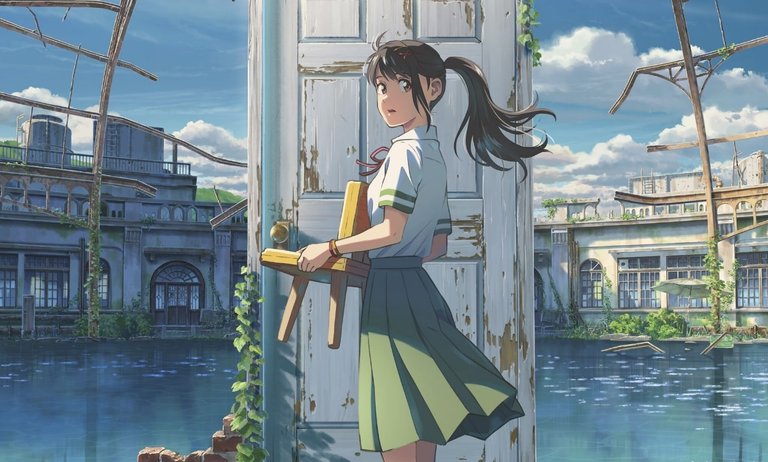 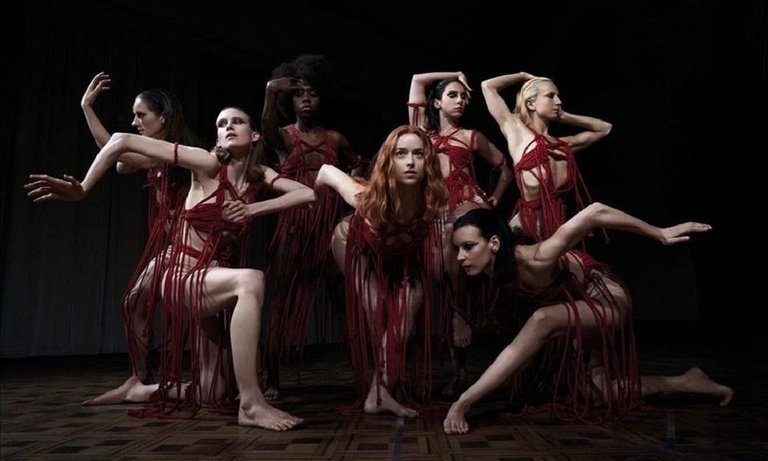 |
|---|

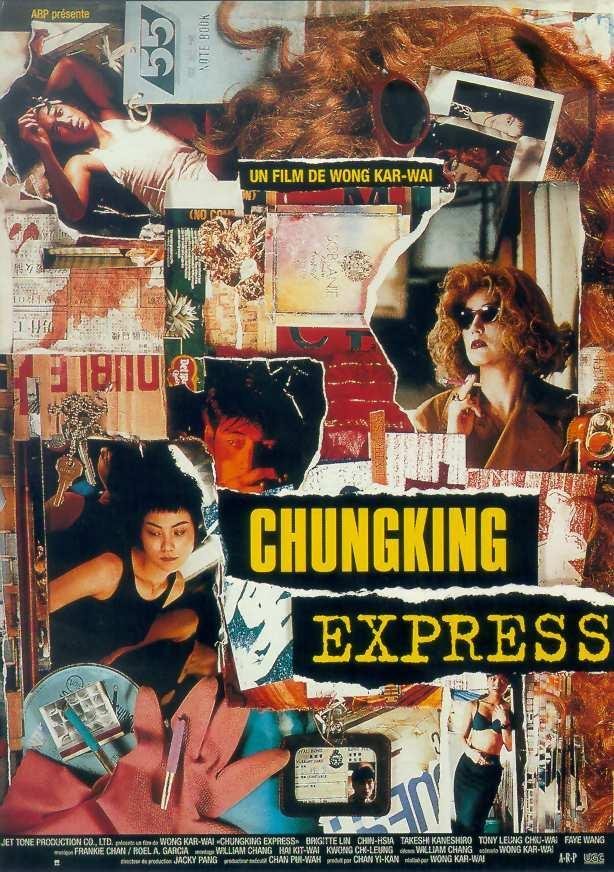


I discovered recently that one reason as to why a lot of the scenes shot by Doyle are so green is because he had cataracts, and after the surgery it turned his vision more blue, leading to him making films with more of a blue tone. Pretty interesting how some of the stylistic choices were so simple, amplified by something some would consider kinda accidental to some degree.
OMG! I didn't know that, so interesting indeed. Greetings and thank you for reading!
Yo debo aprender a manejar estos detalles técnicos de los que hablas para lograr ser más efectiva al momento de leer o generar contenidos de esta línea. Aprecio el gran aporte que nos compartes. Saludos.
Muchas gracias por leerme y por tu valoración y comentario. Saludos.
Si quieres formar parte de nuestro trail de curación ingresa a HIVEVOTE, haciendo clic en la imagen del capybara aristocratico. Capybaraexchange tu casa de cambio, rapida, confiable y segura